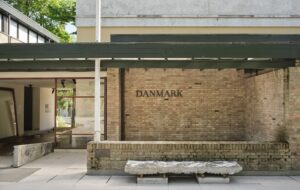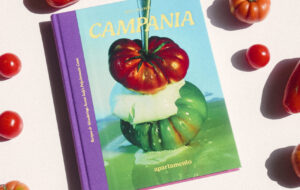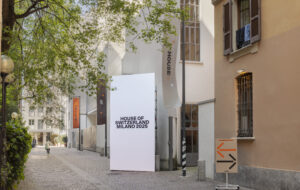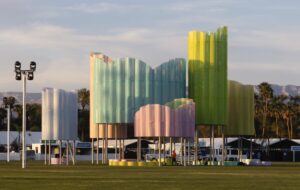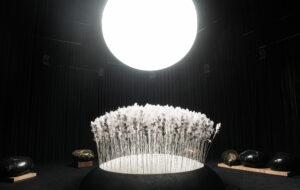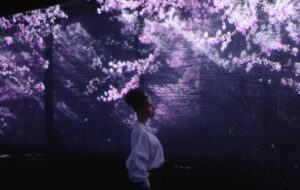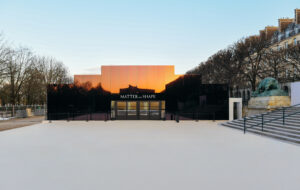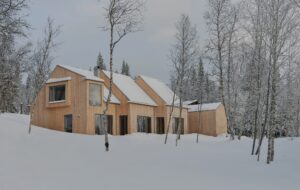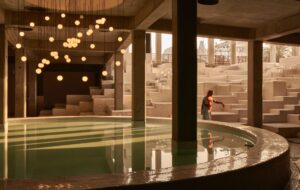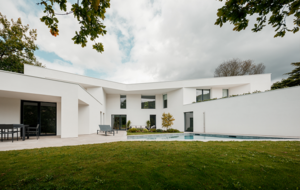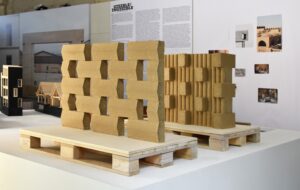|
|
||
|
The labyrinthine vaults underneath London Bridge Station are now familiar territory for a particular kind of arts event. Groups as diverse as participatory theatre maestros Shunt and subversive film club Secret Cinema have used it for large-scale spectacles. And the prospect of returning to those damp, cold arches never seems to grow dim – over and over groups have shown themselves able to build whole worlds down there. That was the first promising sign about Civil Unrest, a performance-design-food event masterminded by Spike Laurie as a finale to the Coming Up festival, which aims to promote new talent in the arts. The second promising sign was its unbeatable timeliness. Civil Unrest, which promised “a landscape of political dissent and social disorder”, came with the rioting that accompanied the winter’s protests against education cuts still fresh in the memory, and the debate about the heavy-handed policing of those protests continuing. With more anti-cuts protests on their way, the issues under examination could hardly be more relevant. The only slightly troubling part was the food – fine dining and Courvoisier cocktails (at £25 a head) as part of an exploration of violent dissent and police brutality? But the potential for a monstrous lapse in taste was so obvious that surely it offered a kind of indemnity – the organisers must have seen that risk. There was no way they could have missed it. Wrong. Civil Unrest was at best botched, brought down by its own overreaching ambition. At worst, it was grotesque, with the bloodiest confrontations between the British state and British individuals in two decades reduced to kitsch in order to provide a bit of dinner theatre for a well-heeled crowd. The evening began with a bit of gentle kettling. We, the audience, trudged slowly through a maze of poster-plastered metal barriers while men dressed as police officers yelled at us. At times, this nudged towards being genuinely menacing, but mostly it was simply surreal. Maybe it was the fact that many people were still clutching drinks, having just been summoned from the bar, making the whole experience like a dystopian cocktail party. We smiled mildly, tittered, make small talk, while helmeted men in full Robocop fig yelled at us and hammered their batons against the barriers. I was reminded of Terry Gilliam’s 1985 film Brazil, set in a nightmarish totalitarian society where political violence has become so everyday that a terrorist bombing can take place in a restaurant without being noticed by the chattering bourgeoisie patrons. Overhead, footage of the real student protests played on a loop like a music video. Demonstrations do often involve a lot of boring standing around waiting for something to happen, though, and that was accurately rendered. On to dinner. Devon Rose beef, with a Jerusalem artichoke puree and roasted root vegetables, served in the evening’s highlight: a prison canteen designed by London creative studio House of Jonn. The canteen, however, served only to draw attention to the horrible confusion eating at the heart of Civil Unrest. From protests and policing, we have moved to a critique of the part-privatised prison service. We have also moved to the near future, under King Charles, in which privatisation has gone even further. So is this critique, or warning? Neither worked effectively, because the meal was actually extremely good, however stark House of Jonn’s setting might be, and however unnerving its inventive Tesco-like brand identity. Deliciously tender beef and a dreamy dessert are hardly negative reinforcement. But then we’re back to the present, for the evening’s centrepiece, a new play by Ben Ellis called Unrestless. The name gives a rough sense of the quality of the writing. Paper-thin stereotypes wafted their way through a plot of deafening predictability, aided by some of the clunkiest exposition possible: “What would our brother, the police officer, say about that?” Some entertaining bureaucratic Newspeak was given to Ellis’s chief constable, but broadly Unrestless ignored the arguments around the cuts, around the protests and around the policing of protests in favour of contrived divided-loyalty conflicts between the characters. The sense that the continuing protests, and their policing, was being used as set dressing for entertainment that was edgy only inits topicality, rather than its handling of any issues, made the experience very uncomfortable indeed. Afterwards, there was a debate, but by that stage I was ready to tunnel my way out with the plastic spoon that came with supper. Civil Unrest. Debut London. 2-4 March. |
Image Karla Gowlett
Words William Wiles |
|
|
||



